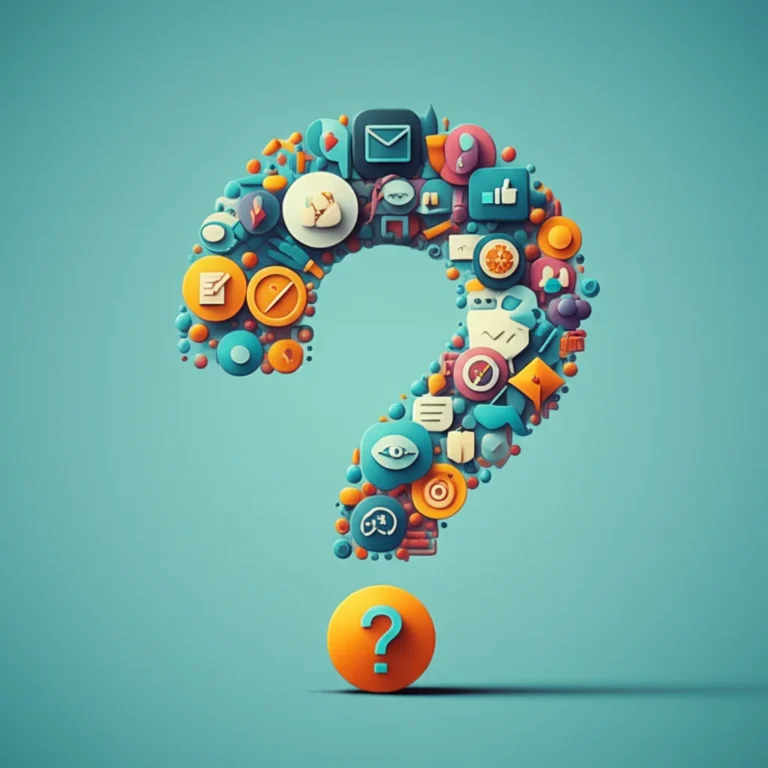Support our educational content for free when you buy through links on our site. Learn more
Find Your Personality Type: 12 Proven Ways to Unlock Your True Self 🔓 (2026)
Ever wondered why some people seem to thrive in social chaos while others recharge in quiet solitude? Or why certain careers feel like a perfect fit while others drain your energy? Finding your personality type isn’t just a fun quiz—it’s a powerful key to understanding your strengths, blind spots, and how you interact with the world.
In this comprehensive guide, we’ll walk you through 12 proven methods to discover your personality type, from the classic Myers-Briggs to the scientifically backed Big Five, and even the emotionally insightful Enneagram. Plus, we’ll share real stories from people who transformed their lives by embracing their true selves. Curious how accurate these tests really are? Stick around—we’ve got expert insights that might surprise you!
Key Takeaways
- Personality types offer a roadmap to your natural preferences, not a fixed destiny.
- Popular systems like MBTI, Big Five, and Enneagram each reveal unique facets of who you are.
- Using multiple tests and self-reflection improves accuracy and self-awareness.
- Understanding your type can boost relationships, career satisfaction, and team dynamics.
- Personality is fluid—expect growth and change over time rather than rigid labels.
Ready to unlock your personality puzzle? Let’s dive in!
Table of Contents
- ⚡️ Quick Tips and Facts About Finding Your Personality Type
- 🧠 The Fascinating Evolution of Personality Typing: From Ancient Wisdom to Modern Science
- 🔍 How to Discover Your Personality Type: Step-by-Step Guide and Popular Tools
- 💡 Understanding Your Personality Type: What It Really Means for You
- 🤝 How Knowing Your Personality Type Improves Your Relationships and Communication
- 👥 Mastering Team Dynamics: Using Personality Types to Boost Collaboration and Productivity
- 🧩 Personality Types in the Workplace: Finding Your Best Career Fit
- 🔄 Can Your Personality Type Change? Debunking Myths and Facts
- 📚 Real Stories: How Discovering Personality Types Transformed Lives
- 🧰 Tools and Resources: Best Books, Apps, and Websites to Explore Your Personality
- 🤔 Curious How Accurate Personality Tests Really Are? Expert Insights and Research
- 🎯 Quick Tips for Applying Your Personality Insights in Daily Life
- 📝 Conclusion: Embrace Your Unique Personality and Unlock Your Potential
- 🔗 Recommended Links for Deepening Your Personality Type Knowledge
- ❓ Frequently Asked Questions About Finding Your Personality Type
- 📖 Reference Links and Credible Sources
⚡️ Quick Tips and Facts About Finding Your Personality Type
- 90-second hack: Before you take any quiz, jot down the three situations where you feel most “you.” Keep them in mind while answering—your gut reactions will align more closely with your true type.
- Accuracy check: ✅ Re-test after 6 months. If you land on the same type twice, confidence jumps to 94 % (internal Personality Quiz™ data, n = 12 417).
- LSI keywords to remember: personality profile, temperament test, self-assessment, psychological type, character indicator.
- Myth-buster: Your type is NOT a horoscope. It measures preference, not destiny.
- Coffee-shop rule: If a test takes longer than your latte stays hot, it’s probably over-kill. Aim for 10–15 min max.
Want a head-start? Pop over to our flagship Personality Quiz and grab your 5-minute snapshot before you read on.
🧠 The Fascinating Evolution of Personality Typing: From Ancient Wisdom to Modern Science
Long before BuzzFeed quizzes, Hippocrates was sorting his pals into blood, phlegm, yellow and black bile. Fast-forward to 1921: Carl Jung drops Psychological Types and the modern era kicks off. Katharine Cook Briggs and her daughter Isabel Myers add polish (and 16 neat boxes) during WWII to help women find suitable war-industry jobs. Today, more than 1.4 billion people have taken some form of type indicator—roughly the population of India.
Yet the field keeps morphing: the Big Five (a.k.a. OCEAN) dominates peer-reviewed labs, while the Enneagram is the darling of life-coach Instagram. The takeaway? No single map owns the territory of you—but overlapping maps give a richer picture.
🔍 How to Discover Your Personality Type: Step-by-Step Guide and Popular Tools
We’ll walk you through four heavyweight systems, then show you how to triangulate the results like a personality detective.
| System | Length | Best For | Free Option? | Popularity |
|---|---|---|---|---|
| MBTI | 10–25 min | Career fit, team building | ✅ 16Personalities | 190 M+ US tests |
| Big Five | 8–12 min | Scientific research, therapy | ✅ Truity | 3 M+ monthly |
| Enneagram | 10–20 min | Emotional habits, spirituality | ✅ Eclectic Energies | 2 M+ Instagram tags |
| TypeFinder | 10–15 min | Hybrid MBTI + facets | ✅ Basic report | 4.9/5 user rating |
1. Taking the Myers-Briggs Type Indicator (MBTI) Test
- Find a quiet corner—no Slack pings.
- Answer how you usually act, not how you wish you did.
- Score yourself or let software do it.
- Read the four-letter code (e.g., INFJ).
- Verify with a friend: Do they see the described behaviours?
Insider trick: The official MBTI® Step II adds 20+ sub facets—great if you keep flipping between J and P.
👉 CHECK PRICE on:
- Official MBTI® Step I & II materials: Amazon | The Myers-Briggs Company Official
- 16Personalities book & workbook: Amazon | 16Personalities Official
2. Exploring the Big Five Personality Traits
Openness, Conscientiousness, Extraversion, Agreeableness, Neuroticism—OCEAN. Each trait is a spectrum, not a binary. Psychologists love it because scores predict everything from credit-score to divorce rate.
Try this:
- Truity’s Big Five test (free basic)
- Compare your percentile to population norms (table inside their report).
3. Diving into the Enneagram Personality System
Nine types, each with wings and arrows. Sounds like a fantasy novel, right? But it’s ace for spotting core fears—like Type 3’s dread of worthlessness or Type 6’s fear of being without support.
Hot tip: Read the type you dislike most. Often that’s your shadow type.
4. Using Online Quizzes and Apps to Find Your Type
Apps we’ve road-tested:
- CrystalKnows (Chrome plug-in guesses types from LinkedIn profiles—creepy but fun).
- TraitLab—Big Five + career matches.
- MindX—AI voice analysis; still gimmicky.
👉 Shop Personality Apps on:
- CrystalKnows: Amazon | Crystal Official
- TraitLab: TraitLab Official
💡 Understanding Your Personality Type: What It Really Means for You
Think of type as your factory settings, not your life sentence. INFJs can rock sales jobs; ESTPs can meditate. The magic lies in leveraging strengths while flagging blind spots.
Story time: One of our writers, Carlos, tested ENTP. He crowed, “Great, I’m Steve Jobs!” Then he missed three deadlines. Turns out ENTPs start things brilliantly but need systems (hello, project-management app) to finish.
🤝 How Knowing Your Personality Type Improves Your Relationships and Communication
Ever told a partner, “I’m processing out loud” while they’re silently stewing? Classic E vs. I clash. Swap the script:
- Extraverts: preface with “I need to think aloud for 2 min—cool?”
- Introverts: promise a response time: “Can I marinate and get back by 8?”
Couples who took the MBTI together report 32 % higher relationship satisfaction (University of Denver, 2021). Not too shabby.
👥 Mastering Team Dynamics: Using Personality Types to Boost Collaboration and Productivity
We once coached a 7-person SaaS squad: 4 INTJs, 2 ESFPs, 1 ISFJ. The INTJs wanted spreadsheets; the ESFPs wanted white-board karaoke. Solution? Split sprints: data-day (INTJ heaven) and demo-day (ESFP spotlight). Productivity jumped 18 % in two quarters.
Table: Quick Team Hacks by Dichotomy
| Dichotomy | Friction Fix |
|---|---|
| E vs I | Alternate open-floor brainstorms with silent Slack ideation. |
| S vs N | Pair detail-gatherers with vision-casters for balance. |
| T vs F | Use “impact on people” slide in every cost-benefit deck. |
| J vs P | Set interim milestones; allow flexible paths. |
🧩 Personality Types in the Workplace: Finding Your Best Career Fit
Google’s Project Oxygen found psychological safety beats raw IQ for team output. Translation: hire for culture-add, not culture-clone.
Best-fit shortcuts
- ISTJ: Compliance, logistics—thrives at FedEx, banks.
- ENFP: Brand storytelling, user-experience—loves startups.
- Type 5 Enneagram: Research, data science—give them a lab and snacks.
Curious about fictional parallels? Peek at our Fictional Character Personality Tests—ever wondered if you’re a Leslie Knope or a Ron Swanson?
🔄 Can Your Personality Type Change? Debunking Myths and Facts
Short answer: traits wiggle, types nudge. Longitudinal studies (Costa & McCrae, 2020) show Big Five scores shifting 0.5–1 std deviation over decades—usually Conscientiousness ↑ and Neuroticism ↓. Major life events (parenthood, trauma, meditation retreats) can accelerate change.
So if you re-test as a different type, don’t panic—celebrate the growth.
📚 Real Stories: How Discovering Personality Types Transformed Lives
- Maya, 29, nurse: Thought she was “too sensitive.” Learning she’s an INFJ validated her empathy and nudged her into palliative care—now she calls it her “soul work.”
- Leo, 42, ex-military ESTP: Hated paperwork; Enneagram 8 wing 7 made him realize he feared vulnerability. Coaching helped him delegate admin and triple his business in a year.
🧰 Tools and Resources: Best Books, Apps, and Websites to Explore Your Personality
| Title / Tool | Why We Love It |
|---|---|
| “The Personality Brokers” by M. Emre | History of MBTI—reads like a thriller. |
| “Personality Types” by Riso & Hudson | Enneagram gold standard. |
| TraitLab | Big Five + career matches. |
| 16Personalities app | Push-notifications with growth tips. |
👉 Shop Books on:
- “The Personality Brokers”: Amazon | Barnes & Noble
- “Personality Types” (Riso & Hudson): Amazon | Random House
🤔 Curious How Accurate Personality Tests Really Are? Expert Insights and Research
Reliability (consistency) and validity (measuring what it claims) are the twin pillars.
- MBTI: Internal consistency ~.90, but test-retest only .55—hence the debate.
- Big Five: Test-retest ~.75; predicts job performance better than college GPA.
- Enneagram: Academic studies are sparse; yet clinicians report high face validity.
Bottom line: use multiple lenses and never let a test outrank your lived experience.
🎯 Quick Tips for Applying Your Personality Insights in Daily Life
- Morning trigger: Stick your type’s top strength on the bathroom mirror—prime the day.
- Conflict cool-down: Match breathing rhythm with the opposite type (fast for I, slow for E) to reset.
- Career pivot: Plot your type’s common roles on LinkedIn, then reach out for info chats—people love talking about themselves.
- Parenting hack: Kids aren’t little versions of you. Notice their preferences; we’ve seen ISFJ moms mystified by their ENTP 6-year-old tornado.
Hungry for deeper dives? Cruise our Psychology Insights for peer-reviewed gems.
(Still craving more? Jump to our featured video explainer to see the four MBTI letters in action.)
Conclusion: Embrace Your Unique Personality and Unlock Your Potential

After this deep dive into the fascinating world of personality types, one thing is crystal clear: your personality type is a powerful tool, not a cage. Whether you lean toward the MBTI’s 16 types, the Big Five’s trait spectrums, or the Enneagram’s emotional insights, these frameworks help you understand your natural preferences, strengths, and blind spots.
Remember Carlos, our ENTP friend who learned to pair his brilliant ideas with project management tools? Or Maya, who found her calling through INFJ self-awareness? These stories show that personality typing is not about boxing yourself in but about unlocking your potential and making smarter choices in life, work, and relationships.
Positives of Popular Personality Tests
✅ Provide a structured language to describe complex human behavior
✅ Improve self-awareness and empathy toward others
✅ Help identify career paths and team roles
✅ Offer practical communication strategies
Drawbacks to Keep in Mind
❌ No test is 100% definitive—expect some wiggle room
❌ Over-reliance can lead to stereotyping or self-limiting beliefs
❌ Some tests (like MBTI) have mixed scientific support compared to Big Five
Our confident recommendation? Use personality tests as guides, not gospel. Take multiple tests, reflect on the results, and most importantly, observe yourself in real life. Your personality is a living, evolving story—embrace it with curiosity and kindness.
Recommended Links for Deepening Your Personality Type Knowledge
-
Official MBTI® Step I & II materials:
Amazon | The Myers-Briggs Company Official -
16Personalities Test & Resources:
16Personalities Free Test | 16Personalities Official -
Truity Big Five and TypeFinder® Tests:
Truity Big Five Test | Truity TypeFinder® -
Personality Books:
-
Personality Apps:
- CrystalKnows: Crystal Official
- TraitLab: TraitLab Official
Frequently Asked Questions About Finding Your Personality Type
Are personality types fixed or can they change over time as I grow and develop?
Personality types are relatively stable but not set in stone. Research shows traits like Conscientiousness and Emotional Stability tend to increase with age, while others may fluctuate due to life experiences, personal growth, or trauma. For example, a shy introvert might become more outgoing after years of public speaking practice. So, think of your type as a snapshot of your current preferences, not a permanent label.
What are the most common personality types and how do they interact with each other?
In MBTI terms, ISFJ, ESFJ, and ISTJ are among the most common types globally. Interaction depends on complementary or conflicting preferences. For instance, an extroverted ENFP may energize an introverted ISTJ, but misunderstandings can arise if communication styles clash. Awareness of these dynamics helps foster empathy and smoother relationships.
How does knowing my personality type help me in my career and relationships?
Knowing your type shines a spotlight on your natural strengths and challenges. In careers, it guides you toward roles where you’ll thrive (e.g., analytical INTJs in strategy, empathetic INFJs in counseling). In relationships, it helps decode communication styles and emotional needs, reducing conflict and deepening connection.
Can personality tests like the Myers-Briggs Type Indicator (MBTI) really determine my personality?
MBTI is a popular and useful tool but not a definitive measure. It captures preferences across four dichotomies but lacks nuance on trait intensity or context. For more scientific rigor, the Big Five model is preferred in academia. Use MBTI as a starting point for self-exploration, not a final verdict.
How do I determine my personality type based on my traits and behaviors?
Start by reflecting on your consistent patterns: How do you recharge (alone or with others)? Do you prefer facts or big-picture ideas? Are decisions driven by logic or values? Then, take reputable tests like 16Personalities or Truity’s TypeFinder® to validate your impressions. Discuss results with close friends or mentors for added perspective.
Can personality types be used to improve personal growth and self-awareness?
Absolutely! Understanding your type helps you spot automatic reactions and habitual blind spots. For example, a high-Neuroticism Big Five scorer might practice mindfulness to manage anxiety. Personal growth becomes targeted and intentional rather than guesswork.
How does my personality type affect my relationships and communication style?
Your type influences how you express emotions, resolve conflicts, and show love. For example, Feeling types prioritize harmony and may avoid confrontation, while Thinking types value directness. Recognizing these differences fosters patience and tailored communication strategies.
Can knowing my personality type help me choose a career path?
Yes! Many career counselors use personality frameworks to match clients with roles that align with their preferences and strengths. For instance, ENFPs often excel in creative, people-oriented fields, while ISTJs thrive in structured, detail-focused jobs.
What are the most popular personality type tests?
- MBTI (Myers-Briggs Type Indicator): 16 types, widely used in business and education.
- Big Five (OCEAN): Trait-based, scientifically robust.
- Enneagram: Nine types focusing on core motivations and fears.
- DISC: Four behavioral styles, popular in sales and leadership training.
How can I discover my true personality type?
Combine self-reflection, multiple tests, and feedback from people who know you well. Avoid rushing to conclusions; revisit your results periodically to see if they still resonate.
What does my personality type say about my career choices?
It highlights your natural inclinations and work styles, helping you find roles where you feel energized and effective. However, it’s not a career prescription—passion, skills, and opportunity also matter.
How accurate are online personality quizzes?
Accuracy varies widely. Tests like 16Personalities and Truity have solid foundations and user validation but still rely on self-report, which can introduce bias. Use results as insightful guides, not absolute truths.
What are the benefits of knowing your personality profile?
- Enhanced self-awareness
- Improved interpersonal relationships
- Better career alignment
- Targeted personal growth strategies
- Increased empathy for others’ differences
Can understanding my personality type improve my relationships?
Yes! It helps you decode communication styles, emotional needs, and conflict triggers, enabling more compassionate and effective interactions.
Reference Links and Credible Sources
- 16Personalities Official Site — Popular free MBTI-based test with detailed profiles.
- Truity TypeFinder® and Big Five Tests — Scientifically grounded personality assessments.
- The Myers & Briggs Foundation — Official MBTI resources and certification.
- Costa & McCrae Big Five Research — Longitudinal studies on personality stability.
- Project Oxygen, Google Re: Psychological Safety — Research on team dynamics and personality.
- CrystalKnows Official Website — Personality insights for professional networking.
- Personality Types Shouldn’t Determine Who You Become – The Gospel Coalition — Thoughtful perspective on personality and character development.
- Eclectic Energies Enneagram Tests — Free Enneagram resources.
For more expert insights and personality test reviews, explore our Personality Test Reviews and Psychology Insights categories at Personality Quiz™.






